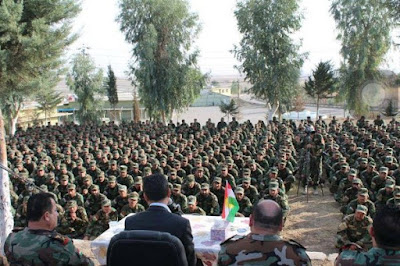On the 10th of October, 2015, state supported bombers attacked
the tens of thousands of people attending a march for peace, killing 128
and injuring over 500, of which 34 are severely injured. Today, Turkey
is a country in which pacifists, democracy activists, workers and
anti-war activists are murdered. The march was organized by non-governmental organizations and trade
unions including KESK (Confederation of Public Workers’ Union), DISK
(Confederation of Progressive Trade Unions of Turkey), TMMOB (Union of
Chambers of Turkish Engineers and Architects) and TTB (Turkish Medical
Association), who had made a call for a ‘peace and democracy meeting’ in
Ankara, the capital city of Turkey. Paramilitary forces that could not
tolerate such a meeting detonated bombs among those that were gathered.
Peace was massacred. Civilians were subjected to terror.
Once again, the Turkish Prime Minister Ahmet Davutoğlu has said that
ISIS is behind the attacks, just as he did after the explosions at an
HDP election rally in Diyarbakir on 5th June, and after the bombing in
Suruç on 20th July in which 33 people died. ISIS, however, has not
publicly claimed responsibility for any of these attacks and it seems
clear instead that the AKP government, while trying to deflect blame
elsewhere, is itself directly responsible for the Ankara attack. For
four years, the AKP government has been ISIS’ most supportive ally,
providing it logistical and material assistance that supported the
growth of the group and, in so doing, creating ever more fertile ground
for violence, division and intolerance throughout the country. In a
statement, ISIS never claimed responsibility for the Ankara attack but
it did celebrate those who carried it out.
Erdogan is forming the platform for these attacks
For months, the AKP government and the President R. T. Erdogan have
been actively raising tensions in Turkey for political gain. They have
been systematically targeting the HDP, unions, journalists and all other
circles who are working for peace. Erdogan himself is forming the
platform for these attacks by stimulating a mentality of terror among
the people. Turkey has never before witnessed a President who has
praised terror to this extent. Inflammatory statements from leading AKP
figures further provoked the largest terror attack in Turkish history:
the Turkish Interior Minister openly said, “We will quash the heads of
anyone who resists” , while only a few days before the Ankara attack
Erdogan’s biggest supporter, the mafia leader Sedat Peker, said, “They
will drown in their own blood, I am Erdogan’s fellow townsman”. These
are the forces behind the attack.
State is adamant on war despite calls for peace and ceasefire
On the morning of the attack in Ankara, the PKK responded to calls
for an end to hostilities by declaring a unilateral cease to all
guerrilla actions. However, the days leading up to this declaration, the
Deputy Prime Minister, Yalcin Akdogan, has been doing his best to
negate such a declaration. In the end, Akdogan just said, “We’ve had
enough of ceasefires”. Finally, with this attack in Ankara, the AKP and
its gangs have shown that they are not in favor of peace. This is
terror, state terror.
• The EU and USA must reconsider their close relationships with
Turkey, a country that a deems it proper for its people to be massacred.
They must stop supporting a Turkish President who can look in the eyes
of the world and lie, threaten everyone and provoke war and terror.
• They must openly tell the AKP that it is not acceptable for a
government to terrorize its own people purely to maintain its own grip
on power.
Below are the names of those that were killed in the Ankara attack that have been so far determined by the HDP:
Abdülkadir Uyan, Abdullah Erol, Abdulselam Çetin, Ahmet
Elhadi/Alkhadi, Ali Kitapçı, Ali Deniz, Ali Deniz Uzatmaz, Ayşe Deniz,
Azize Onat, Başak Sidar Çevik, Berna Koç, Bilgehan Karlı, Bilgen Parlak,
Binali Korkmaz, Canberk Bakış, Derici Erbasan, Dicle Deli, Dilan
Sarıkaya, Dilaver Karharman, Ebru Mavi, Ekin Aslan, Elif Kanlıoğlu, Emin
Aydemir, Emine Ercan, Emir Ercan, Emre Karataş, Ercan Adsız, Eren Akın,
Erol Ekici, Fatma Esen, Fatma Karabulut, Fatma Eşe, Fatma Karakurt,
Fevzi Sert, Feyat Deniz, Gökhan Akman, Gökhan Gökbölü, Gökmen Dalmaç,
Gözde Aslan, Gülbahar Aydeniz, Gülbahar Aydın, Gülhan Elmascan, Güney
Doğan, Hacı Kıvrak, Hacı Mehmet Şah, Hakan Dursun Akalın, İbrahim
Atılgan, İdil Güney, İhsan Deniz, İsmail Kızılçay, İzzettin Çevik, Kasım
Otur, Kemal Tayfun Benol, Kenan Mak, Korkmaz Tetik, Kubilay Ankara,
Kübra Meltem Mollaoğlu, Leyla Çiçek, Mehmet Ali Kılıç, Muhammed Zakir
Karabulut, Meryem Bulut, Mesut Mak, Metin Peşman, Metin Kürklü, Muhammet
Demir, Murat Orçun Çalış, Necla Duran, Nevzat Sayan, Nilgün Çevik,
Nizamettin Bağcı, Nurgül Çevik, Onur Tan, Orhan Altıntaş, Osman Ervasa,
Osman Turan Bozacı, Özver Gökhan Arpaçay, Ramazan Çelik, Ramazan
Çalışkan, Ramazan Tunç, Resul Yanar, Rıdvan Akgül, Sarıgül Tüylü, Selim
Örs, Serdar Gül, Sevgi Öztekin, Seyhan Yaylagül Yıldız, Sezen Vurmaz
Babatürk, Şebnem Yurtman, Şirin Kılıçalp, Tekin Aslan, Umut Tan, Uygar
Coşkun, Vahdet Öyke, Vahdettin Uzgan, Vedat Erkan, M.veysel Atılgan,
Yılmaz Elmascan, Yunus Derice, Ziya Saygın, Aycan Kaya, Orhan Işıktaş,
Ramazan Çalış, Nevzat Özbilgin, Cemal Avşar, Mehmet Teyfik Dalgıç,
Nurullah Erdoğan, Abdülbari Şenci, Bedriye Batur, Filiz Fatma Batur,
Sevim Şinik, Hasan Baykara, Niyazi Büyüksütçü, Ümit Seylan, Gazi
Güray/Güral, Ahmet Katurlu, Serdar Ben, Mehmet Hayta, Adil Gür, Sabri
Elmas, Erhan Avcı.
Kurdistan National Congress



















































































